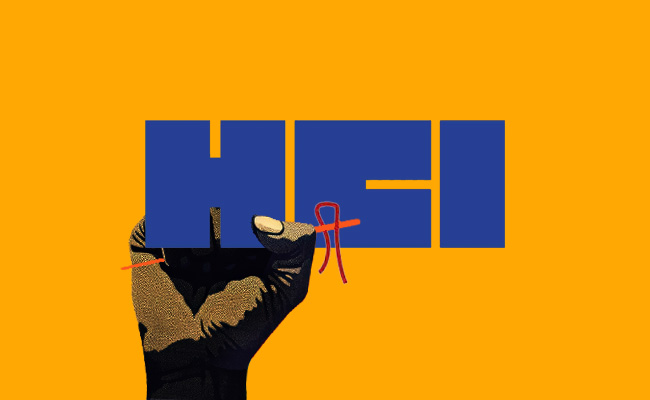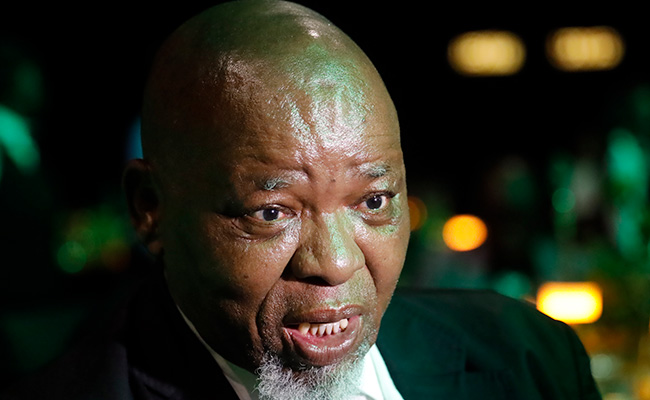Black empowerment, here and now in South Africa, is under fire, for good reasons and bad. It’s a debate that is easy to misconstrue, given the complexities involved.
But we need to have the patience to work though the complexities and understand the issue in detail, given how important it is in framing South Africa’s future.
It is an unarguable fact that South Africa remains profoundly unequal, and race remains a large driver of inequality. I believe that BEE and affirmative action remain absolutely necessary to make the South African economy more competitive and more sustainable.
In my business, for example, Standard Bank requires a staff that is representative of the communities we serve. Equally, for the South African economy to perform better, a more equitable distribution of resources and opportunities is required.
It is also true that there are great businesses like Seriti and African Rainbow Minerals, both of which are, to a significant extent, the product of BEE. In the language of economics, this is the product of the transfer of rents from one set of rights holders to another.
Equally, though, I have no hesitation in condemning the corrupt appointment of contractors under the cover of BEE whose incompetence means that millions of South Africans regularly go without essential municipal services. A much greater emphasis should be placed on purging BEE of corruption.
Deeper analysis needed
But these are just the headlines. It’s important to look more closely, and the place to start is by recognising that BEE is a statutory and constitutional obligation.
The bill of rights is clear that “equality includes the full and equal enjoyment of all rights and freedoms” and that efforts should be made to “promote the achievement of equality, legislative and other measures designed to protect or advance [people] disadvantaged by unfair discrimination”.
As I read it, this clause requires the South African government, whichever party is in power, to implement affirmative action, BEE or analogous measures to promote not just theoretical equality, but real equality of opportunity.
The statutory obligation is created in the Employment Equity Act, which provides that every designated employer must implement affirmative action measures for people from designated groups. Similarly, the Broad-based Black Economic Empowerment Act of 2003 and its associated sector codes underscore this obligation.
A second point emerges from thinking about economies in general. Market economies have enormous virtues, and you’re never going to find a more enthusiastic and committed capitalist than me.
But, as someone committed to the long-term preservation of the market capitalist system, I recognise that markets, if left unregulated, tend to exacerbate existing inequalities of opportunity and outcome.
Any capitalist with a long-term view and, I would argue, any sensible government, will want to use non-market redistributive mechanisms to lean against this tendency.
Obviously, the main mechanisms for doing this are taxes and spending on public goods, such as education, health and infrastructure. But in situations where inequality has a specifically racial, ethnic or gendered character, pure tax-and-spend tends to be much less able to reduce inequality.
This being so, governments have frequently had recourse to equivalents of affirmative action and BEE. Examples include the Bumiputra system in Malaysia, special programmes for “scheduled castes and tribes” in India, and even affirmative action in the US.
Situations where governments don’t redistribute enough, or fairly enough, or with enough attention to characteristics like race, lead to social and political instability.
It is plausible to argue that one reason for recent unsettling political outcomes in various countries is that established political parties did not pay enough attention to income and opportunity inequality, or to changes in the incidence of ethnic and racial inequality.
Understanding ‘rents’
It is often argued against BEE that it enables or encourages “rent seeking”.
It certainly has an inherent weakness in this direction, and this should be guarded against, as I have already implied. But it is important to note that every socioeconomic setup creates rents, since rents are simply returns to property, or rights, or status or veto power.
For instance, in colonial and apartheid South Africa there were very large rents to being a white man. In contemporary Europe, there are rents to being an EU citizen. In China, there are rents to having an urban “hukou”. If the creation of rents was a knock-down argument against any social policy, hardly any social system would pass muster.
In this context, the sensible questions are:
- Do the rents help to redress inequality, create opportunity, and increase production and welfare? Or are they spent fruitlessly?
- Are the rents so large that they distort or decelerate the economy as a whole?
Now, the reality is that there are precious few credible academic econometric studies of the costs and benefits of BEE. Perhaps we should commission one.
But on the face of it, it occurs to me that the very large estimates of the costs of BEE that one sees ignore important considerations – such as what effects BEE has had on the scale and pattern of aggregate demand, and the extent to which it has had a stabilising effect on the political economy.
As a thought experiment, for instance, is it not likely that the independence of our central bank, and the myriad benefits of that, remain possible, at least in part, because policies like BEE make technocratic policy sustainable by reducing pressure to attempt monetary quick fixes?
To get back to what I said at the beginning, obviously one of the major arguments mounted against BEE is the extent of the corruption that has been wrought under its name. And we must do our utmost to make sure this is halted.
To put this into economic terms, rents should continue to be transferred – but with the clear and enforced expectation that such rents must be used to generate genuine opportunities, real profits from market competition and public goods.
No holy cow
Calls have been made recently that the policy needs to be reformed, and there is a case for modifying the requirements where there is a large and clearly countervailing public benefit, such as when there is a foreign direct investment that would create many jobs. BEE rules should be analogous to competition regulation in this way.
This highlights how BEE is simply a policy to achieve economic and social ends, not a holy cow.
As it is, South Africa could indeed benefit from a review and modernisation of our business regulation to make it easier to start and run small and medium-sized enterprises – and Black-owned small and medium-sized enterprises in particular.
At Standard Bank, we are required to comply with literally hundreds of regulations, many of which are now too old to be relevant, and some of which are at cross purposes. We would be considerably more efficient and profitable – and better able to serve our clients and support transformation and inclusive growth – if these rules were modernised.
As a developing economy characterised by inequality, South Africa does need to be regulated, including by way of BEE rules. But all of us would be better off if we had less unnecessary and antiquated red tape.
Sim Tshabalala has been CEO of Standard Bank, Africa’s largest bank, since 2013.
Top image: Standard Bank CEO Sim Tshabalala. Picture: supplied.
Sign up to Currency’s weekly newsletters to receive your own bulletin of weekday news and weekend treats. Register here.















Great piece!!.
BEE is just another tool of ethnic cleansing
Sim, the problems I identify in your argument are:
1) You are black and therefore are a direct beneficiary of the BEE you propose
2) All of the “safeguards” checks and scrutiny you champion for inclusion to make BEE resistant to abuse were intended when BEE was first introduced, and yet it has fuelled epic corruption. The underlying concept and structure of BEE has failed to achieve equal inclusivity in our economy, at a devastating cost to the economy (think corruption, failed businesses, wasted funds paid out to unsuitable businesses). Why promote this model further?
3) There is not a vibrant entrepreneurial business culture in RSA because the rules promote “blackness” over skills or a great idea/opportunity. Joint Black/White/Indian/Chinese (or whatever) business ventures become an exercise in compliance rather than an exercise in real business development and investment. It is stifling and the real reason for de-industrialisation and the lack of investment in our economy. Why should it be easier (as you propose) for a black person to start up and run a business than for a white person?
Innovative reframing of the policy of promoting inclusivity is required. BEE has not achieved what it set out
THIS OF COURSE HASN’T MENTIONED THE BLATANT RACIST ANTI-WHITE LEGISLATION CONTAINED WITHIN BBBEE.
THE WHITES BORN AFTER THE 1994 CHANGE OF GOVERNMENT ARE STILL BEING DISCRIMINATED AGAINST, IN THE JOB MARKET ESPECIALLY, AND THE “SCORECARDS” IN BUSINESS ARE HEAVILY WEIGHTED AGAINST WHITES, AND GETTING WORSE EVERY YEAR, MORE THAN 30 YEARS AFTER TAKING POWER.